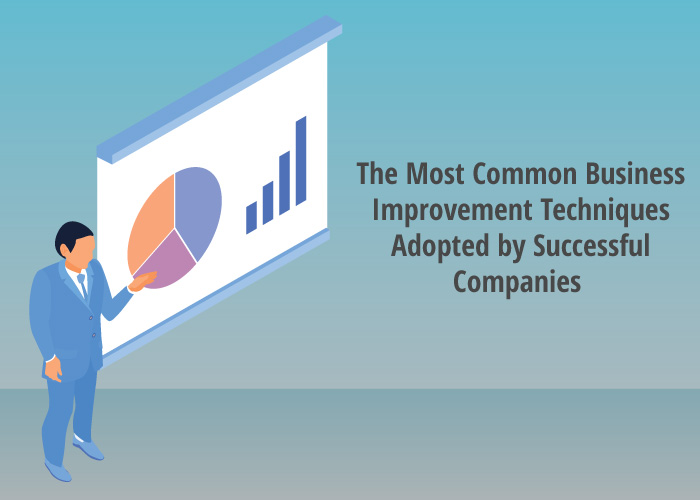
Entrepreneurs are always on the look out for improving their prospects of success. How they balance things, keep innovating and growing their business is often an art more than science. But there are some things which can help their cause a great deal. Structuring and organising things for constant improvement is always helpful.
To excel in a competitive environment, companies need to fuel innovations, reinvent themselves with market demands and.embrace changes proactively. Here is a study of how
1. Employee Engagement

Involving employees for key and important activities. Actively seeking their inputs for taking important business decisions. Helping them develop their careers and progressively enhance skills in line with company needs. When employees are engaged, dedicated and work with energy, it creates a strong business.
2. Productivity Tracking
Every business ought to measure its productivity to improve tangibly. The time spent on business must translate into visible progress. Companies that set-up ways to measure the impact of employee time spent on projects & work find ways to improve.
Businesses that cannot find a way to measure employee productivity and correlate it with project outcomes will have a harder time to complete. When employees are engaged, suitably rewarded and know that their efforts influence business, they give their best. Self driven teams are the greatest assets of a business.
3. Measuring Automation Results

Every company is investing into automation these days. But what you are automating and what it is doing for your business needs to be measured. The most important metrics related to business needs to be laid out in clear terms. The business process automation must be able to provide long term value to a company.
Take for e.g. the amount of hours put in by a business for accounting and administration is 100 hours per year. After automation of accounting, if the business spends say 60 hours, then it shows a significant improvement of 40%. The business automation strategy must be benchmarked against performance metrics relating to cost, time and performance as per business needs.
4. Process Improvements with TQM
The total quality management refers to company wide efforts to “install and make permanent climate where employees continuously improve their ability to provide on demand products and services that customers will find of particular value.”
The total quality management includes all aspects of business from the time the product is designed, engineered, marketed, sold, and supported. The ability to deliver products and customers that provide value is the essence of business. Making ongoing refinements in how you build, deliver and support these products and services creates long term business success.
With automation software, the quality parameters for business can be measured with a high degree of reliability.
5. Customer Support & Experience

The improvement of customer experience leads to great business results. The quality of your products and services is one of the ways you can influence customer experience. The quality of solutions, design and engineering are all things that shape the customers mindset about your company.
Organisations that improve customer satisfaction rate with respect to activities like services, changes, and after sales support are likely to increase their business prospects. Most of these satisfied customers present organisations with cross selling opportunities & are loyal to them.
Organisations that improve customer satisfaction have ways to gather customer feedback & inputs. They implement the ideas from customers into their products and services & find ways to constantly improve their products/services.
6. Partnerships
The digital world is increasingly becoming an open and adaptive place for organisations. Even the most successful companies like Microsoft have changed their mindset and embraced collaboration with partners as well as competitors.
Partnerships can help a business explore uncharted markets, increase their presence in various locations and gain from partner’s strengths too. These partnerships are even more relevant when digital technologies are making businesses scalable. To build and develop a business, you need strong core capabilities and stay open for partnerships in other areas of business.
7. Social Impact

The social impact that your business creates can be a massive opportunity for your company. All great brands start with a meaningful mission. They are able to attract the right people, customers and build their own community of followers.
Companies that understand the larger impact of their operations & positively influence society around them are more likely to succeed in their mission. When a company is driven to create a positive impact, people rally around the business and become loyal followers.
For e.g. when McDonald established itself as the pioneer food brand, it wanted to be a place where people can get quality food without spending a premium. They built followers for their brand around the world due to their consistency, quality and service.







